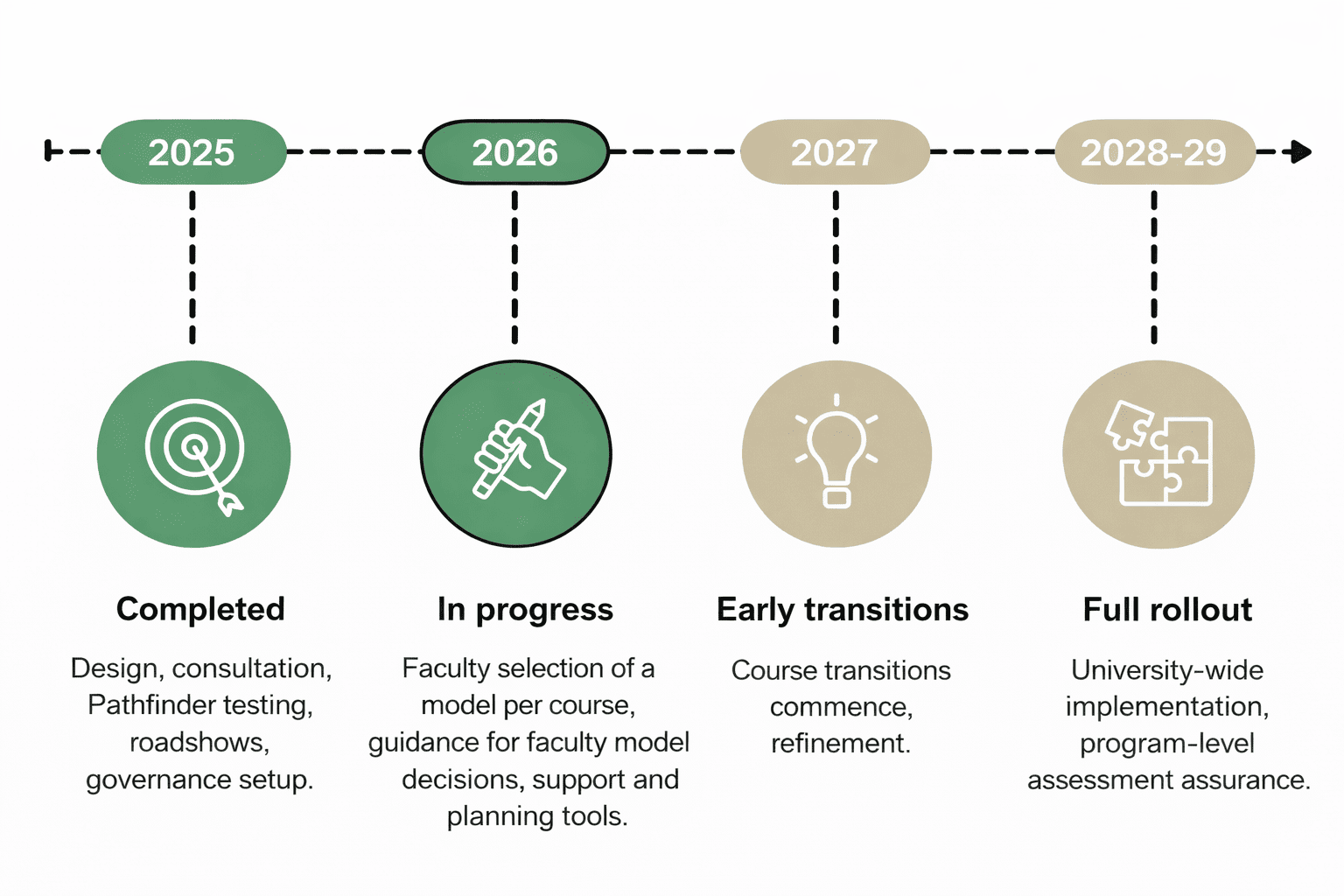Clear expectations. High-quality learning. Consistent experiences – wherever students study.
At Charles Sturt University, we want every student to know what to expect from their course – how learning is delivered, how they will engage and how assessment supports their success. MEA is about bringing greater clarity, consistency and quality to the student experience, while supporting academics to focus on high-value teaching.
MEA is a key initiative in Charles Sturt University’s 2026–28 Strategic Plan. It provides a structured, University-wide approach to designing and delivering courses that strengthens student experience, teaching quality and operational sustainability. With MEA, courses will align to one of three defined Models of Engagement. These models give students consistent expectations about how their course is delivered, how they engage in learning and how assessment supports their progress — no matter where or how they study with us.



The characteristics outlined below reflect Version 6 of the Models of Engagement. These models will continue to be refined as course transitions progress and insights are gained through implementation.
| Model | Key features | Staff role | Student impact |
|---|---|---|---|
| Fully Online | 100% online, flexible | Prepare online learning, tech readiness | Independent learning, flexible schedule |
| In-Person Immersive | Campus-based, cohort learning | Facilitate immersive experience | Hands-on, collaborative |
| Combined | Mix online & campus | Ensure blended coordination | Flexible with some face-to-face |
As MEA moves from design into preparation for implementation, DLT’s focus in 2026 is on building readiness across faculties and supporting teaching teams through a staged, guided transition. This work is designed to provide clarity, reduce complexity and ensure courses are well-positioned to deliver high-quality student experiences.
In 2026, DLT will focus on:
To guide course transitions and ensure decisions are transparent, consistent and well supported.
To support decisions about the most appropriate model of engagement for each course.
To support course alignment and reduce duplication and administrative burden.
Creating space for dialogue, questions and shared problem-solving.
So staff always know what is happening and what is coming next.
Including building supervised assessment capability and supporting assessment design that remains authentic and secure in an AI-rich environment.
We publish a quarterly MEA update to share progress, key milestones and what’s coming next. You can find previous updates below. If you don’t currently receive these emails and would like to, please contact us at MEA@csu.edu.au
This update marks a significant milestone for MEA, including ELT endorsement of the proposal and the shift from design into preparation for implementation. It outlines what this means for staff and students, key priorities for 2026, and how the work will progress toward early course transitions from 2027.
This update highlights strong progress across the MEA initiative, including extensive staff engagement through roadshows and CAEN workshops, early testing of the models through Pathfinder courses, and continued development of the MEA business case. It also outlines the growing focus on AI in assessment and what’s coming next as the models move toward refinement and broader consultation.
Please refer to the detailed FAQs below, which address common questions about MEA and supervised assessment.
Get in touch if you have any additional questions or feedback about the initiative.